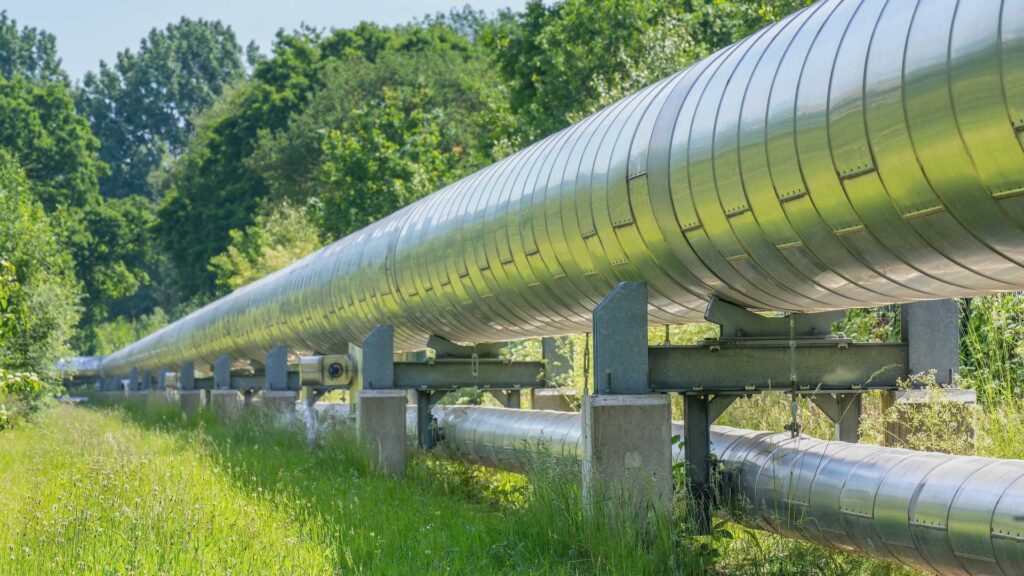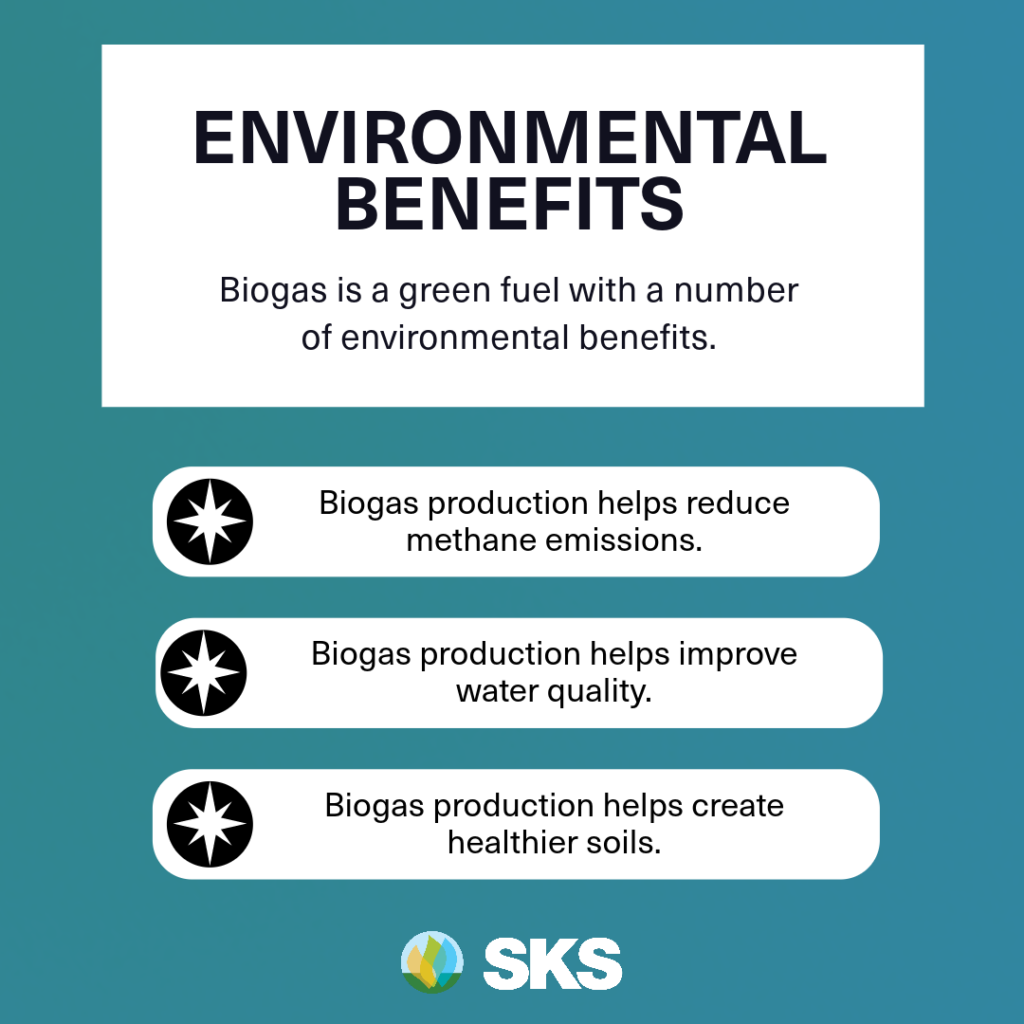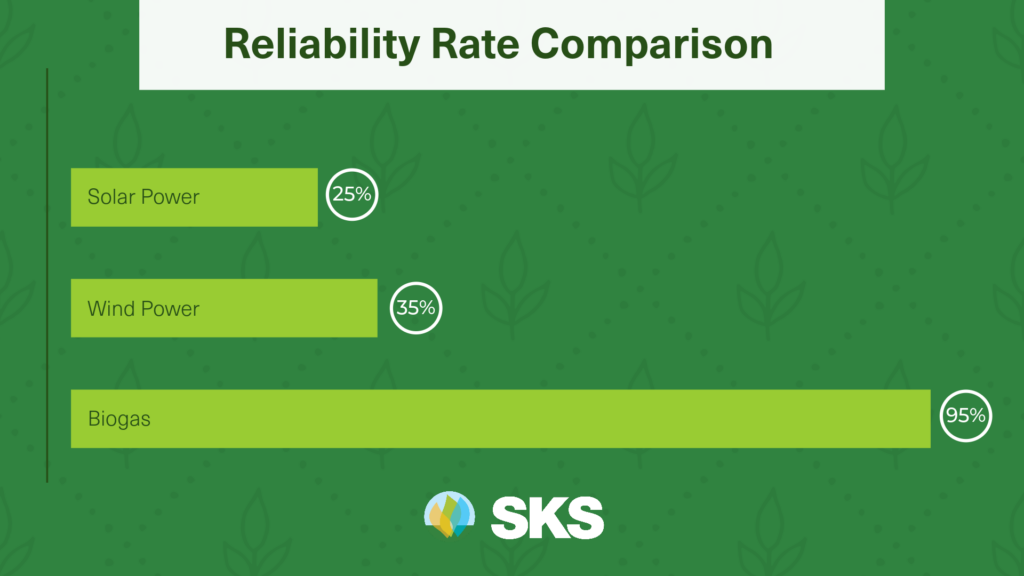Dairy farms produce a lot of waste. Manure, bedding, and other organic materials can create a significant environmental and financial burden for farmers. But what if there was a way to turn that waste into a valuable resource?
That’s where biogas comes in. Biogas is a form of renewable energy that can be produced from organic waste. It’s a clean, efficient, and sustainable way to generate power and heat, and it can also help to reduce greenhouse gas emissions.
In this article, we’ll take a closer look at the benefits of biogas for dairy farms. We’ll discuss the economic, environmental, and energy benefits of biogas, and we’ll review how biogas can help dairy farmers reduce their costs and improve their bottom line.
The Economic Benefits of Biogas
Biogas can provide an array of economic benefits. First, it can be a new source of income for dairy farmers. Purified biogas, or renewable natural gas (RNG), is one of the outputs of an anaerobic digestion facility. RNG can be injected into the natural gas pipeline, where it can be used to heat homes and businesses, generate electricity, and fuel vehicles. Dairy farmers can sell RNG created by their biogas digesters to natural gas companies, which can then sell it to consumers. The price of RNG varies, but it can be a significant source of income for dairy farmers.

Second, direct use or sale of digestate can add an important revenue stream or create savings for farmers. Digestate, a solid byproduct of the anaerobic digestion process, can be used to create nutrient-rich fertilizer, livestock bedding, and other soil amendments such as compost. These products may be used directly on the farm or sold to other local and regional agriculture and horticulture sources, adding an important revenue stream or creating savings for farmers.
Third, biogas digesters can also create jobs in the construction, operation, and maintenance of the facilities. The Coalition for Renewable Natural Gas estimates that the construction of 100 new renewable natural gas facilities would support 25,100 construction jobs and 4,200 operational jobs.
Biogas can provide a number of economic benefits for dairy farmers. By generating new income, saving money on energy, fertilizer, and bedding costs, and creating jobs, biogas can help dairy farms to be more profitable and sustainable.
The Environmental Benefits of Biogas
Biogas production has a number of environmental benefits. First, it can help reduce methane emissions. Methane is a potent greenhouse gas that is 25 times more effective at trapping heat than carbon dioxide. When methane is produced from organic waste in landfills or manure lagoons, it is released into the atmosphere as a greenhouse gas. Biogas production captures methane and uses it as a fuel, which prevents it from being released into the atmosphere.
Second, biogas facilities can help improve water quality by reducing nutrient runoff. Manure and other organic waste contains nutrients that can pollute waterways. When these nutrients are broken down in an anaerobic digester, they are converted into forms that are less likely to run off into groundwater and other water resources. This can improve water quality and reduce the risk of algae blooms and other waterborne problems.
Third, biogas can help create healthier soils. The digestate that is produced from biogas production is a nutrient-rich fertilizer that can be used to improve soil health. This can help to increase crop yields and reduce the need for chemical fertilizers.
Biogas is a green fuel with a number of environmental benefits. It can help to reduce methane emissions, improve water quality, and create healthier soils. As the demand for renewable energy grows, biogas is becoming an increasingly attractive option.

The Energy Benefits of Biogas
Biogas is a renewable source of energy that is a direct replacement for non-renewable, carbon-intensive fossil fuels. It can be used interchangeably with natural gas for heating, electricity, and the production of quality biomethane and transportation fuel.
One of the biggest benefits of biogas is that it can be produced 24/7/365 with a reliability rate of 95%. This is in comparison to solar power, which has an average reliability rate of 25% and wind power, which has an average reliability rate of 35%.

Biogas can also be used to generate electricity on-site, which can help to reduce the cost of energy on farms. For example, a dairy farm with a biogas digester could use the electricity to power their milking parlor, lighting, and other equipment.
How to Get Started with Biogas on Your Dairy Farm
If you are a dairy farmer who is looking for ways to save money, reduce your environmental impact, and create new revenue streams, biogas is a great option to consider.
SKS Development is a leading provider of renewable energy solutions that can help you turn your manure into a valuable resource. Our team has the knowledge and experience to help you build the right facility for your needs, and we will work with you to understand your specific requirements and develop a solution that meets your operational and investment objectives.
To learn more about biogas and how it can benefit your dairy farm, please reach out to the SKS team. We would be happy to answer your questions and help you get started on your path to a more sustainable and profitable future.
